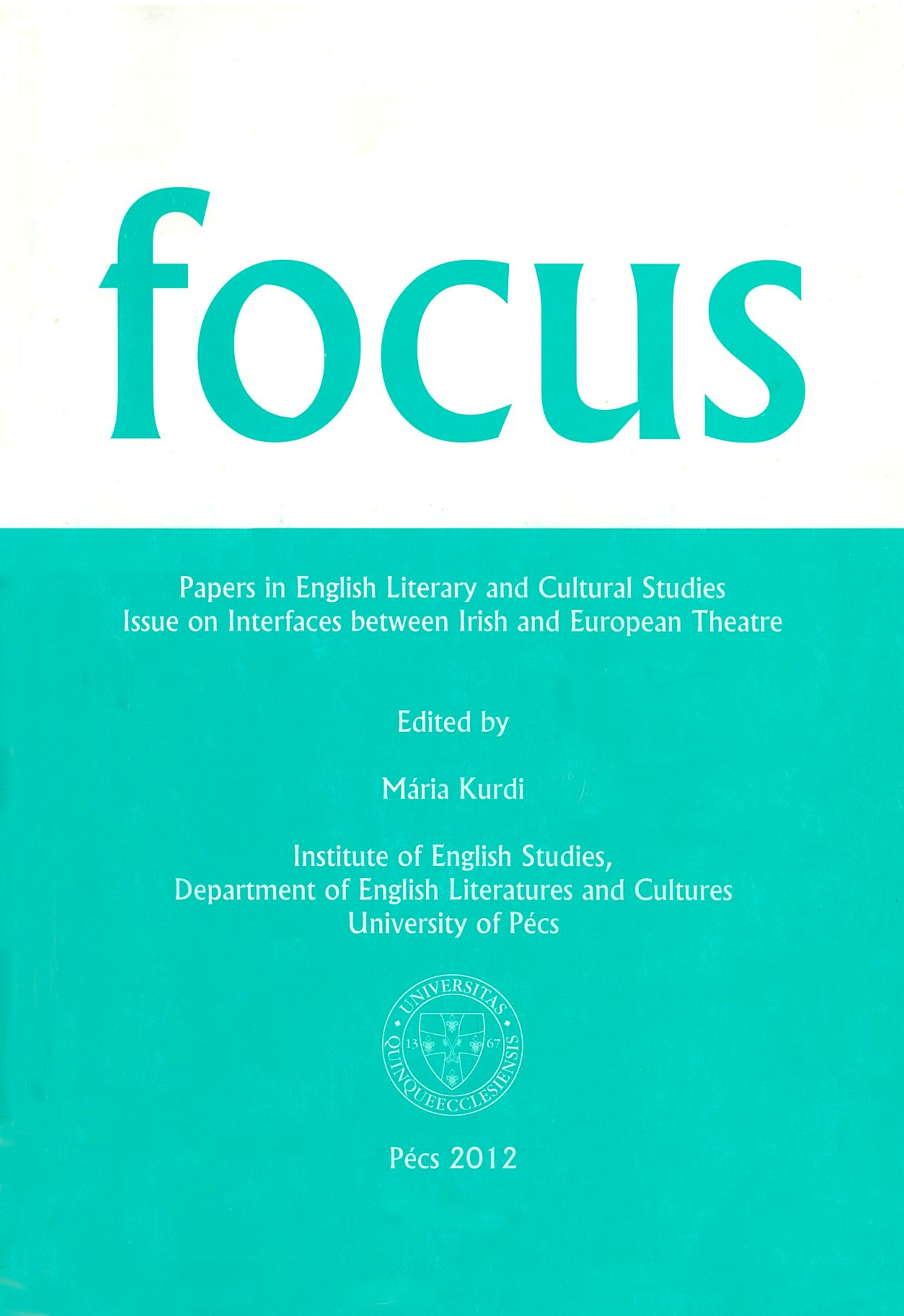Merging Worlds: Place, Politics, and Play in Martin McDonagh’s The Pillowman
DOI:
https://doi.org/10.15170/Focus.8.2012.1.77-92Keywords:
Martin McDonagh, theatre studies, Ireland, space, placeAbstract
Martin McDonagh’s transition from his regional Leenane Trilogy (1996-1997) and Aran Island plays (1996-2001) to The Pillowman (2003) marks a significant departure in his dramaturgical approach. The absence of a specified geographical location in The Pillowman challenges traditional notions of place in theatre. While space is fundamental in constructing meaning, Anne Ubersfeld suggests that plays offer socio-cultural coordinates rather than literal representations. In The Pillowman, McDonagh explores power dynamics within an unspecified totalitarian state, highlighting the tensions between official authority and individual agency. Thus, while the play lacks a specific dramatic locale, the politics of place still shape the narrative and character interactions.
Downloads
Published
How to Cite
Issue
Section
License

This work is licensed under a Creative Commons Attribution-NonCommercial-NoDerivatives 4.0 International License.
FOCUS: Papers in English Literary and Cultural Studies follows the principles laid down by Creative Commons, which provides guarantees for the Author’s copyright while also ensuring that intellectual properties are made available for the wider public in a digital form. All papers submitted to the journal apply the following licence conditions (indicated on the journal’s website as well as in individual publications):
“© This work is licensed under a Creative Commons Attribution-NonCommercial-NoDerivatives 4.0 International License.”
You are free to:
- Share, copy and redistribute the material included in the journal in any medium or format under the following terms:
- Attribution — You must give appropriate credit to the Author, and indicate the original place of publication [FOCUS: Papers in English Literary and Cultural Studies, Issue nr., page numbers.].
- NonCommercial — You may not use the material for commercial purposes.
- NoDerivatives — You are not allowed to remix, transform, or build upon the material.
- The above conditions must always be indicated if the journal material is distributed in any form.
- The above conditions must always be met, unless a written permission signed by the Author and the Editor-in-Chief states otherwise.

